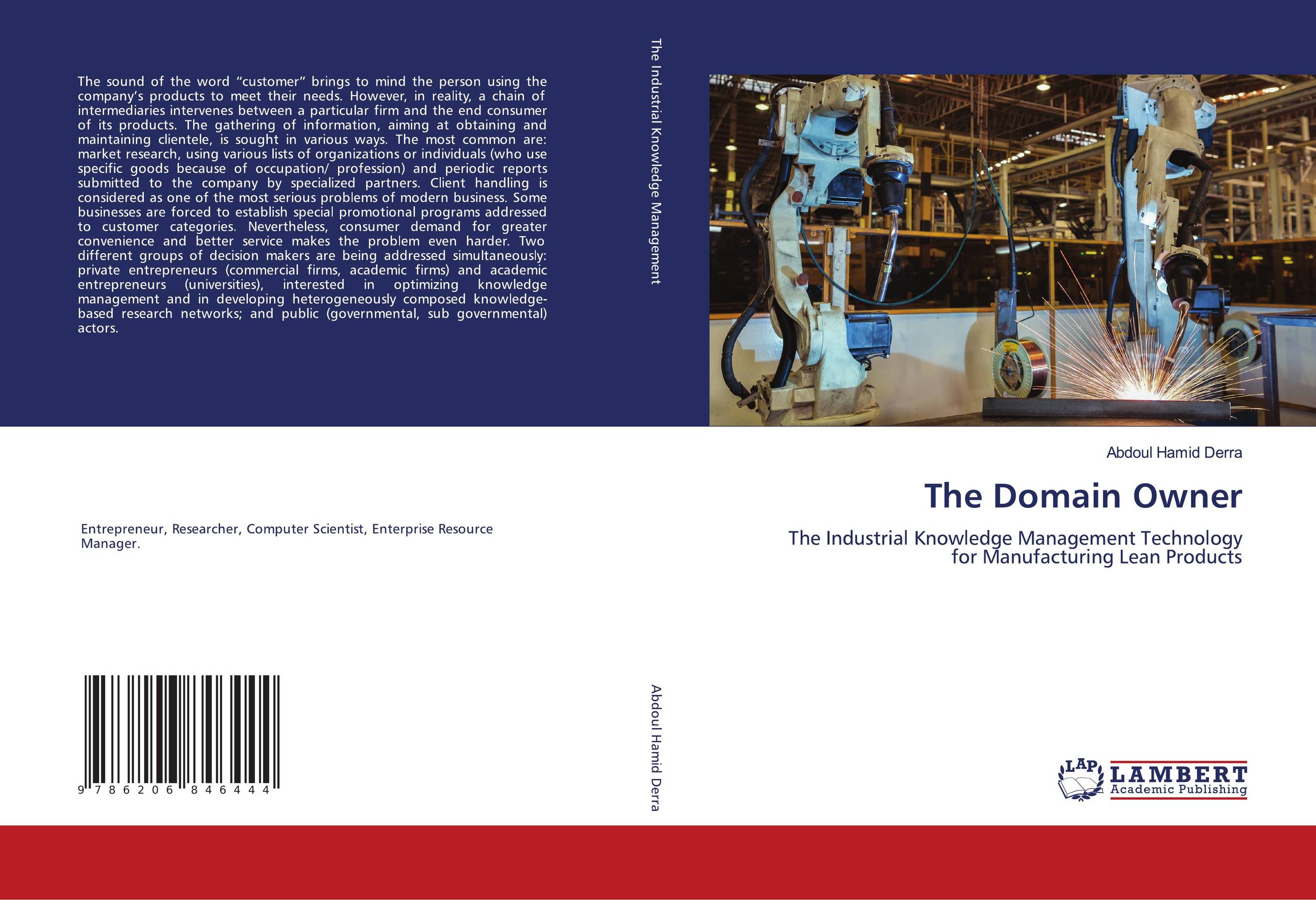| Поиск по каталогу |
|
(строгое соответствие)
|
- Профессиональная
- Научно-популярная
- Художественная
- Публицистика
- Детская
- Искусство
- Хобби, семья, дом
- Спорт
- Путеводители
- Блокноты, тетради, открытки
The Domain Owner. The Industrial Knowledge Management Technology for Manufacturing Lean Products

В наличии
| Местонахождение: Алматы | Состояние экземпляра: новый |

Бумажная
версия
версия
Автор: Abdoul Hamid Derra
ISBN: 9786206846444
Год издания: 1905
Формат книги: 60×90/16 (145×215 мм)
Количество страниц: 436
Издательство: LAP LAMBERT Academic Publishing
Цена: 69959 тг
Положить в корзину
Позиции в рубрикаторе
Отрасли знаний:Код товара: 767725
| Способы доставки в город Алматы * комплектация (срок до отгрузки) не более 2 рабочих дней |
| Самовывоз из города Алматы (пункты самовывоза партнёра CDEK) |
| Курьерская доставка CDEK из города Москва |
| Доставка Почтой России из города Москва |
Аннотация: The sound of the word “customer” brings to mind the person using the company’s products to meet their needs. However, in reality, a chain of intermediaries intervenes between a particular firm and the end consumer of its products. The gathering of information, aiming at obtaining and maintaining clientele, is sought in various ways. The most common are: market research, using various lists of organizations or individuals (who use specific goods because of occupation/ profession) and periodic reports submitted to the company by specialized partners. Client handling is considered as one of the most serious problems of modern business. Some businesses are forced to establish special promotional programs addressed to customer categories. Nevertheless, consumer demand for greater convenience and better service makes the problem even harder. Two different groups of decision makers are being addressed simultaneously: private entrepreneurs (commercial firms, academic firms) and academic entrepreneurs (universities), interested in optimizing knowledge management and in developing heterogeneously composed knowledge-based research networks; and public (governmental, sub governmental) actors.
Ключевые слова: Academic Communities, Access to Financial Ressources, Access to New Technology, Access to Physical Ressources, Administrative Innovations, Aesthetic, Affecting Procedures Deeply Entrenched in The Social Process, Allowing Interchange of Continuity and Discontinuity, awakening, Business Clusters and Innovation Network, competitors, Compliance with the Regulations, Connection to target-customers, content, Cost control, Costing Methodology, Coverage of Operationnal Needs, Creating New Business Opportunities and Venues but also Inverting Familiar Norms, creation, Creativity and Competition, Customers, Descision Makers, private, Academic Entrepreneurs, Public Actors, Government, Sub-government, Developpement Blocks, Developpement of an Enterprise, Easy to Assemble, Economic Competence, Emphasis of Fullfilling Operational Needs, Entrepreneurial Startup Support, environnement, Exhibiting Cumulativeness, Explicit, fear of failure, Fear of Success, Feasibility study, Focus on Aesthetics in the Design, Formal Control to Protect Copyright, Formal Procedures to Protect Copyright, Generational Innovations, Geographical Scope, Human-Ware, impact, Implicit, Human Mind, organization, Improvement Techniques, Incremental Innovations, Industry Focus, Info-Ware, Infra-Ware, Innovation Networks, Innovations of Content, Institutional Infrastructure, Interested Global Readership, Invention, Involving Risk and uncertainty, Knowledge Clusters, Lack of Courage, Lack of Immagination, Laws and Constitution, Level of Reasonance, Level, Market Demand, Market Research, Marketing and Quality Control Processes for the Aesthetic Aspect of the Product, maturation, mechanization, Modeling or Imitaion of Observed Behavior, Moral Conventions and Social Values, Motivational Orientation or Intrinsic or Extrinsic Approach of a Person to Work, Natural Wealth, Network Access, Objective and Purpose, Offer of Improvments, Office Support, Often Involved in Problem Solving, Operational Sequence, Optimal Use of Existing Conditions, Organizational Changes, organizational culture, organizational knowledge, Originality, Partener Enterprises, Political Climate, population, Processing a Systemic Dimension, Processing Corporate Memory and Exhibiting Historicity, pressure groups, Price/Value, Process Innovations, Process of Innovations, process, Professionnal Associations, Quadriple Helix, Quality control, Quantitative Controls, Assess Improvment, Technology New Material, Functions and Uses, Radical Innovations, Radical Technologies, Segment Scope, Recommendation, Short Term Focus on Profit, Social Facilitation, Social Inhibition, The Presence of Others, Specialization, Strategic Planning, Strategy Versus Tactical Options and Actions, Suppliers, tacit, Techniques of Ideas Development, Technological Integration, technology transfer, technology, The Mode 3 System Approach, Techno-Ware, Administrative or Organisational Innovation, The Classification of Innovations, The General Economic Situation, Product or Service Innovation, Twenty-First Century Innovation Ecosystem, Unions of Employees, Vertical Scope



